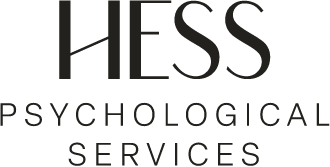Cognitive Behavioral Therapy (CBT) stands out as one of the most effective and widely researched forms of psychotherapy, helping countless individuals overcome mental health challenges and improve their quality of life. Whether you’re struggling with anxiety, depression, trauma, or other emotional difficulties, CBT offers practical tools and strategies to help you regain control and move forward with confidence. If you’re considering counseling, understanding how CBT works and its proven benefits can empower you to take the next step toward healing.
What Is Cognitive Behavioral Therapy?
Cognitive Behavioral Therapy, often abbreviated as CBT, is a structured, time-limited form of talk therapy that focuses on identifying and changing unhelpful thought patterns and behaviors. Unlike some therapies that delve deeply into past experiences, CBT is primarily oriented toward solving current problems and developing coping skills for the present and future.
CBT is grounded in several core principles:
- Psychological problems are influenced by faulty or unhelpful ways of thinking.
- These problems are also shaped by learned patterns of unhelpful behavior.
- People can learn better ways of coping and thinking, leading to symptom relief and improved functioning.
CBT is a collaborative process between you and your therapist, working together to understand your challenges and develop a personalized treatment plan.
How Does CBT Work?
CBT helps you become aware of the connections between your thoughts, feelings, and behaviors. By recognizing patterns that contribute to distress, you can learn to challenge and replace negative thoughts with more balanced, realistic ones. This process often involves:
- Identifying cognitive distortions (unhelpful thinking habits)
- Challenging and reframing negative thoughts
- Developing problem-solving skills
- Practicing new behaviors and coping strategies
Therapy sessions are typically structured and goal-oriented, with “homework” assignments to help you practice new skills outside of sessions. This hands-on approach empowers you to become your own therapist, building resilience and confidence over time.
What Conditions Does CBT Treat?
CBT is recognized as a gold-standard treatment for a wide range of mental health conditions. Research has consistently shown its effectiveness for:
- Anxiety Disorders: CBT helps individuals manage excessive worry, panic attacks, phobias, and social anxiety by addressing the thoughts and behaviors that fuel anxiety.
- Depression: By challenging negative thinking and promoting positive activities, CBT can lift mood and restore hope.
- Post-Traumatic Stress Disorder (PTSD) and Trauma: CBT equips individuals with tools to process traumatic memories and reduce symptoms of PTSD.
- Substance Abuse: CBT addresses the underlying thought patterns that contribute to addiction, supporting recovery and relapse prevention.
- Perinatal Mood Disorders: New parents can benefit from CBT’s strategies for managing mood swings, intrusive thoughts, anxiety, and depression during and after pregnancy.
- Pediatric Concerns: CBT is effective for children and adolescents dealing with anxiety, depression, behavioral issues, and more.
- Couples and Relationship Issues: CBT-based couples therapy can improve communication, resolve conflicts, and strengthen relationships.
For more information on how CBT can help with specific issues, explore our dedicated service pages:
Benefits of Cognitive Behavioral Therapy
CBT offers several unique advantages that make it a preferred choice for many seeking mental health support:
- Evidence-Based: CBT is backed by hundreds of clinical trials and decades of research, demonstrating its effectiveness across diverse populations and conditions.
- Structured and Time-Limited: Most CBT treatment plans involve a set number of sessions, making it a practical option for those seeking focused, goal-oriented therapy.
- Skill-Building: CBT teaches practical skills that you can use for a lifetime, including stress management, emotional regulation, and effective problem-solving.
- Empowering: By learning to recognize and change unhelpful patterns, you gain a greater sense of control over your thoughts, emotions, and behaviors.
- Adaptable: CBT can be delivered in individual, group, couples, or online formats, making it accessible to a wide range of people.
What to Expect in CBT Sessions
During CBT, you’ll work closely with a licensed therapist in a supportive, nonjudgmental environment. Sessions typically involve:
- Setting specific goals for therapy
- Exploring the relationship between thoughts, feelings, and behaviors
- Practicing new skills through role-play, exposure exercises, or relaxation techniques
- Reviewing progress and adjusting strategies as needed
Your therapist may assign exercises or “homework” to reinforce what you learn in sessions, helping you apply new skills in real-life situations.
Why Choose Counseling at Hess Psychology?
At Hess Psychology, our experienced therapists specialize in Cognitive Behavioral Therapy and are dedicated to helping you achieve lasting change. We offer compassionate, evidence-based care tailored to your unique needs, whether you’re seeking help for anxiety, depression, trauma, or relationship challenges.
- Personalized Approach: We take the time to understand your story and collaborate with you to develop a treatment plan that fits your life.
- Comprehensive Services: From perinatal mood disorders to substance abuse counseling, we offer a full range of therapy options for individuals, couples, and families.
- Support for All Ages: Our team is skilled in working with children, teens, and adults, providing specialized care for every stage of life.
If you’re ready to take the first step toward healing, we invite you to contact us and schedule a confidential consultation.
Cognitive Behavioral Therapy FAQs
How long does CBT take?
Is CBT effective for children and teens?
Can CBT be combined with medication?
Is online CBT effective?
Take the Next Step Toward Wellness
Cognitive Behavioral Therapy offers a proven, practical path to overcoming life’s challenges and achieving greater emotional well-being. If you’re struggling with anxiety, depression, trauma, or relationship issues, don’t wait to seek help. At Hess Psychology, we’re here to support you every step of the way.
Explore more about our services:
Contact us today to begin your journey toward a healthier, happier you.
